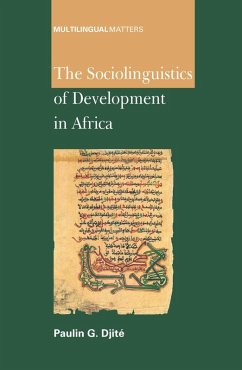This book discusses the existing sociolinguistic order in Africa, how it is sustained, how it might be changed to the advantage of those who are dominated by it and, most importantly, how it affects the development potential of the Continent. It raises issues about African languages that the average person is not always aware of. For example, why must the African child learn how to read and write in a foreign language? Why must all African doctors be trained in languages that their patient population do not understand? Why must African leaders address their people in languages they know the people do not understand? What are the flow-on effects of these language practices on Africa's development goals? The book also proposes sustainable and development-oriented alternatives to these practices.
Dieser Download kann aus rechtlichen Gründen nur mit Rechnungsadresse in A, D ausgeliefert werden.









